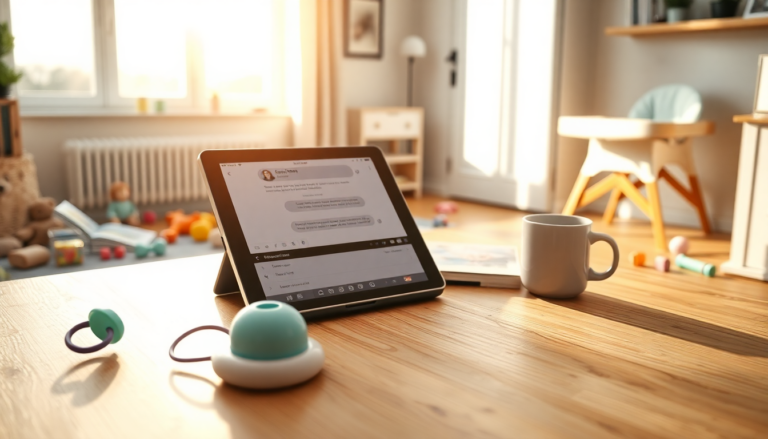Argomenti trattati
In a recent podcast, OpenAI CEO Sam Altman shared some personal insights about his journey into parenthood, highlighting how he turned to AI chatbots like ChatGPT for support. This revelation has ignited a lively discussion about the role of artificial intelligence in modern parenting and what it might mean for the future.
Altman’s AI Parenting Journey
During the podcast, Altman was refreshingly honest, stating, “Clearly, people have been able to take care of babies without ChatGPT for a long time.” But he quickly added a personal twist: “I don’t know how I would’ve done that.” This admission underscores just how deeply AI has influenced his approach to childcare.
In those challenging early weeks of parenting, Altman found himself reaching out to ChatGPT for advice more often than he expected. He remarked, “Those first few weeks it was constantly,” pointing to a level of reliance that raises questions about how we traditionally approach parenting. Rather than consulting parenting books, family members, or even a simple Google search, he turned to AI. This trend reflects a larger shift where technology increasingly shapes our personal experiences.
As he continues, Altman expresses a hopeful outlook on the future for children growing up alongside AI, saying, “My kids will never be smarter than AI. But they will grow up vastly more capable than we grew up.” This perspective suggests that kids today are not just adapting to AI; they might thrive in ways that past generations could only dream of. But is this optimism warranted?
The Debate on AI’s Impact on Capability
While Altman’s vision of a more capable future generation is intriguing, it raises some critical questions. Could our dependence on AI tools actually hinder the development of essential life skills? Critics argue that if AI takes over most tasks, people may struggle with fundamental abilities like writing or critical thinking.
Moreover, Altman’s viewpoint seems to suggest a stark division between the pre-AI and post-AI eras, where anything before is seen as outdated. This perspective risks oversimplifying the complexities and challenges that come with the current state of AI technology. Many users have experienced limitations with chatbots, from misunderstanding queries to outright hallucinations, raising doubts about the idea of AI as an infallible resource.
As Altman pointed out, today’s children might look back at this era as “very prehistoric,” a statement that invites scrutiny. The vast datasets that train AI models are rooted in historical human knowledge and experiences, highlighting the ongoing relevance of traditional learning methods that could easily be overshadowed by the convenience of AI-generated answers.
Challenges Ahead for AI Technologies
The discussion about AI’s role in parenting also brings to light a larger issue in the tech world: the contamination of chatbot data. Since the launch of ChatGPT in 2022, the quality of data used to train AI has become increasingly compromised by synthetic outputs from earlier models. This raises significant concerns about the reliability and integrity of future AI systems.
As more chatbots contribute to this data pool, the risk of AI model collapse becomes more pronounced. Observers have noted that some recent AI models show a worrisome inclination to hallucinate, leading to misinformation and confusion. Tackling these challenges may not only be difficult but also exceedingly expensive.
In conclusion, while Altman’s enthusiasm for AI’s role in parenting showcases a fascinating intersection of technology and everyday life, it’s essential to maintain a balanced viewpoint. The potential benefits of AI should be carefully weighed against the challenges and limitations it brings. As society navigates this uncharted territory, understanding the full impact of AI on human development will be a critical conversation to keep alive.

